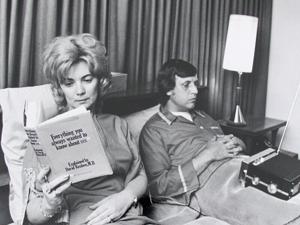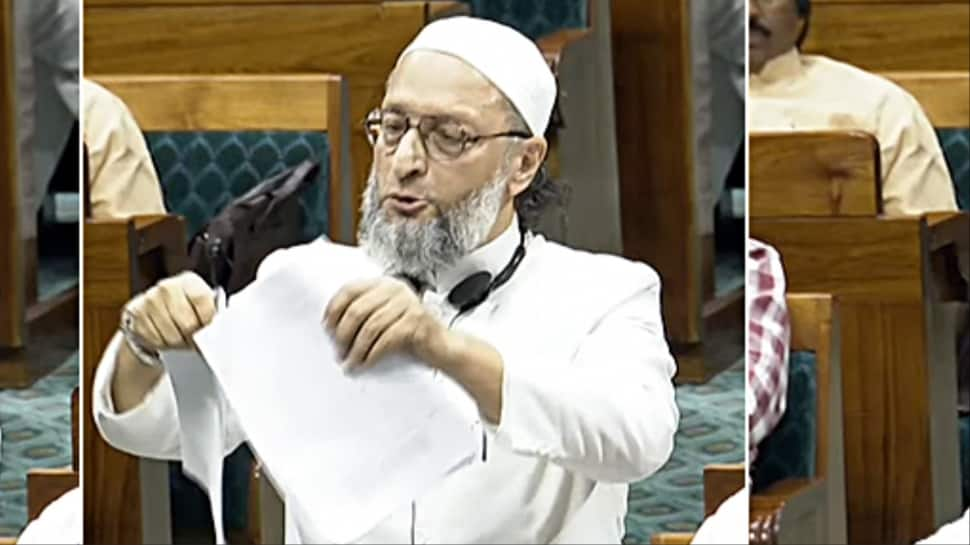
Kate McKenna knew that talking about the lack of many couples have would be a spicy topic for TV. When the producer and host was planning out a special series for “The Social” about the unfiltered realities of , she knew she wanted to tackle the impact that having children can have on a couple’s . But she didn’t anticipate how hard it would be to find other women who were willing to talk about it, too.
“We talked about everything — conception, , , decisions to have children — and yet the only question that people said they weren’t comfortable sharing about on air was the amount of sex they are or are not having with their partner,” said McKenna. “This still feels so sticky and so personal.” McKenna, who self-describes as “an open book, there’s nothing mysterious about me,” had touched on the topic several times on the daytime talk show, sharing her own experience as the mother of two young kids having less sex than she’d once had.

“I think we need to normalize couples, particularly with young kids or other stressors, not having sex, and for it to be OK,” she said during one about whether it’s a problem if a couple is rarely or never physically intimate. “It’s one thing to make all these jokes about [how] we should be having sex — and trust, we should, sex is good for everybody — but I think this is more normal than we think.” In the studio, this was greeted by a muted beginning of a clap from the audience, quickly followed by laughter and what sounded like a boo when fellow panelist Naomi Snieckus added that the key is communication, like if both partners were to agree to take a year off sex.
When this clip was shared on Instagram, there was a strong reaction in the comments. Perspectives ranged from judgmental (“wife first, mother second”; “yet another reason that mothers should not work full time”) to relieved. Some shared their own experiences of in a : One commenter reported getting “bedroom divorced” and never being happier; another wrote that “the mental load is not even and thus, desire is not even.
” McKenna said some viewers accused her of being “an advocate for a sexless marriage,” but others thanked her for starting a conversation that many people wanted to have, but haven’t felt able to. “From the very beginning, there’s this ideal of a relationship being physical at all times as a marker of success.” “I was amazed by how many people have been keeping this stuff bottled up,” she said.
“What I wanted to do was just normalize the fact that there are many couples out there who aren’t having a lot of sex, for a variety of reasons, and that doesn’t necessarily mean their relationship is doomed.” For her part, McKenna said her own “sex drive was shot” at certain points in the past few years as she juggled motherhood during a pandemic. “It does feel like a touchy subject, because I don’t want people to judge my partnership or assume that it’s not in a great place,” she said.
It’s mostly a matter of juggling all of the other competing priorities in her life, she added. “I just don’t know where to fit it in.” But sex isn’t the only marker of a happy, healthy relationship.
“You can still like each other, but not be having sex. I’ve been able to happily coexist with my partner, and love my partner deeply, in periods where we aren’t having that much sex,” McKenna said. “I wish, of course, that we were having more, and I’m sure he does too, but it hasn’t affected my ability to love and respect him deeply.
” Not having sex can be suffused with shame, and feel like a failure to meet some sort of implicit standard of a romantic partnership. “From the jump, it’s like, ‘Did you get butterflies? Did you feel certain things in your body when you met this person?’ From the very beginning, there’s this ideal of a relationship being physical at all times as a marker of success,” McKenna said. “And yet, we don’t acknowledge the many phases of a relationship, whether that’s parenting, mourning, illness, , .
” Six Toronto women at various stages of perimenopause and menopause shared what they wish they Narratives abound that couples who aren’t having sex are just one dry spell away from splitting. When Jessica Alba shared on a podcast that she and her husband were like “roommates,” months before filing for divorce, they became objects of ridicule. On “Real Housewives of New York,” the fact that cast member Jessel Taank her husband hadn’t had sex in the year after their twins were born became an unsettling subplot.
“I was so angry that these women were roasting [Taank] for not having much of a sex life. Aren’t we in an era when we support women having choice over their own bodies?” said McKenna. “For a series that in many ways feels modern, it felt like a real throwback to me.
I absolutely felt triggered. Like, is this what we’re doing now? There are a million things we should be judging the quality of partnerships on, and sex doesn’t have to be one of them.” Sex therapist and educator Brooke Koblinksy said that it is “extremely common” for couples to come and see her because at least one partner thinks they aren’t having “enough” sex.
“I don’t think it’s a red flag.” Sometimes, Koblinsky said, it’s a symptom of deeper issues in the relationship (think: unresolved conflict, deceit), especially if it’s led a couple to seek professional help. In most cases, however, it’s not the death knell to a relationship that so many of us fear.
When couples “are satisfied with their emotional intimacy, feel like they’re friends, but contextually things have happened in their lives that have caused sex to drop off,” Koblinsky doesn’t see serious cause for concern. “Frankly, it’s just a lack of that accurate sex-ed that tells people, you don’t need to feel this libido or sex drive before entering sex. You can start by just touching each other or cuddling, and desire can emerge from that.
” It’s a myth that feeling like you’re roommates is the point of no return in a relationship, said Koblinsky. She pointed to the “wildly inaccurate, pervasive notion that if you’re with the right person, you’ll always feel that eroticism and sexual intimacy. But maintaining a satisfying sex life requires intention and effort, just like any other part of a relationship.
” It can be difficult to talk about the lack of sex you’re having, but that’s what Koblinsky recommends. “Start with open communication and address it,” she said. “In an open and respectful way, talk about what you do miss and what you do want back, and check in with how your partner is feeling about it.
” If your partner is reluctant to discuss this, she suggests writing it down in a letter, relieving them of the need to respond in the moment. If you’re feeling guilt that you’re not in the same headspace for sex as your partner, that’s something to discuss directly too. “Share how you might not be ready, or you feel this pressure,” she said.
“Come up with creative ways of what you two can negotiate doing at this point in time that you feel comfortable with.” That might be just cuddling or making out for a few minutes before bed, instead of intercourse. “Hopefully, through that communication, [you’ll find] you do have a sensitive partner who will be patient and willing to work with you to reduce that sense of pressure and feel more comfortable.
” Koblinsky sees the greatest success among couples who report that they’re friends, have fun together and have good emotional intimacy. “By tackling this area, I do find that they’re more satisfied with their sexual frequency moving forward. And they’re more comfortable with phases where they fall out of having sex at a frequency that they want,” she said.
“They have this attitude of knowing they have the skills to get back to intimacy afterward.” McKenna concurs. “The most romantic thing ever is riding the waves with someone in a long-term relationship, and putting in the work, and seeing someone grow,” she said.
“Of course, sex is important, and it ebbs and flows. I just think for so many people there are periods where the sex isn’t there, but the love still is.”.















